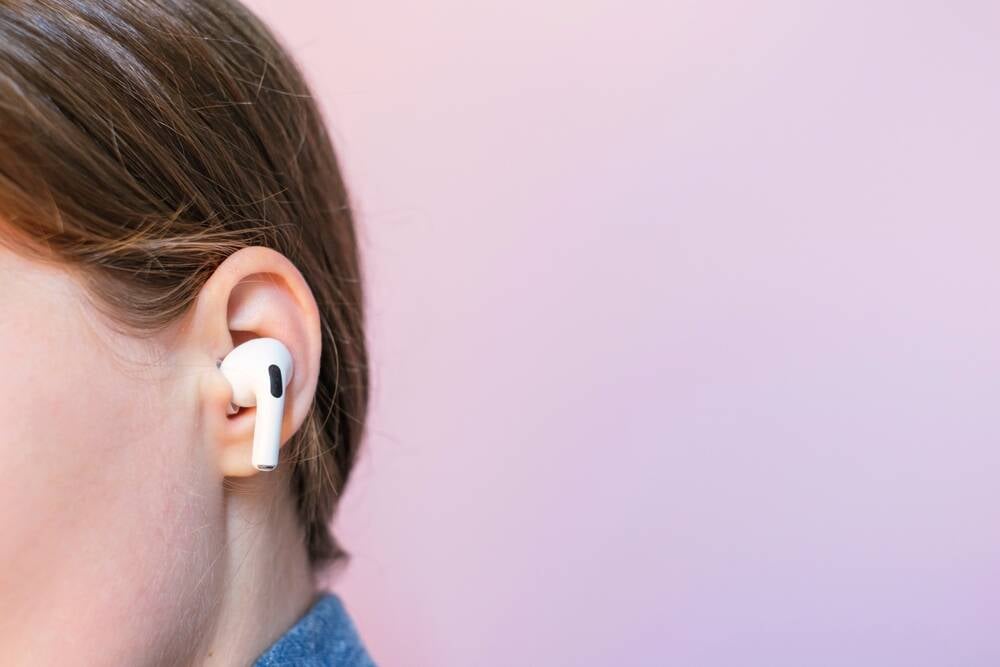Apple AirPods Pro 2 Can Be Sold As Hearing Aids, Says FDA

America's drug watchdog this week gave Apple permission to market its AirPods Pro 2 as over-the-counter hearing aids, disrupting an industry where traditional devices have often cost thousands of dollars.
Apple announced on Monday that AirPods Pro 2 earpieces will sport a so-called Hearing Aid Feature (HAF), suitable for those 18 years or older with mild to moderate hearing loss. With that feature activated, the $249 AirPods act as a proper hearing aid, and now Apple can market the software-based tech as such with the FDA's approval.
That means folks can get such a gadget without a doctor's visit and prescribed expensive hearing aid.
The HAF software will test a user's existing hearing and set the AirPods amplification of surrounding sounds to compensate for hearing loss. It was clinically tested on 118 subjects and found to be as effective as a normal hearing aid that requires a prescription, as long as the level of hearing loss isn't severe, according to the FDA.
“Hearing loss is a significant public health issue impacting millions of Americans,” said Michelle Tarver, acting director of the FDA's Center for Devices and Radiological Health.
“Today’s marketing authorization of an over-the-counter hearing aid software on a widely used consumer audio product is another step that advances the availability, accessibility and acceptability of hearing support for adults with perceived mild to moderate hearing loss.”
- Apple debuts iPhone 16, Watch Series 10, assorted AirPods
- Say 'ahhhh' – AI robots are now gunning for your gums
- Apple crippled watchOS to corner heart-tracking market, doctors say
- Promising results for osteoarthritis treatments tested in space
The FDA's approval has certainly been a long time coming. In 2017, President Donald Trump signed a bipartisan bill to require the FDA to approve over-the-counter hearing aids by 2020. Up until that point, a prescription had been required and such devices typically cost an average of $5,000 and come from a small number of manufacturers, with four companies controlling 84 percent of the market. Insurance doesn't always cover these widgets.
Since that law passing, the FDA dragged its feet. President Biden issued an Executive Order in 2021 requiring the regulator to open up the market and the agency finalized the rules the following year. Since then, several companies have entered the OTC hearing aid market and Apple's HAF is the first software-based solution to get FDA approval.
You'd think hearing aid manufacturers would be suffering a stock slump at the moment but that's not the case, thanks to the joys of vertical integration. Many of the current hearing aid manufacturers either own or have agreements with auditory healthcare providers, as Matt Stoller, director of research at the American Economic Liberties Project, detailed in a recent newsletter.
"Wall Street isn’t particularly concerned that margins for hearing aid producers will go down. Now there are many possible reasons for this. Perhaps stockholders are just wrong, or perhaps they think 'I’ll believe it when I see it,'" he wrote.
"But I’ve learned a lot about the hearing aid market since last May, and it turns out that these firms use a variety of techniques to keep prices high, mirroring how most medical markets are screwed up by corrupt middlemen. So the creation of an OTC market is just the start of the battle."
The decision is also good news from a social standpoint - existing hearing aids are typically large devices and many people feel embarrassed to wear them, including this vulture's mom. But by building them into AirPods, which are everywhere these days, the stigma should be reduced, and the costs for many certainly will be. ®
From Chip War To Cloud War: The Next Frontier In Global Tech Competition
The global chip war, characterized by intense competition among nations and corporations for supremacy in semiconductor ... Read more
The High Stakes Of Tech Regulation: Security Risks And Market Dynamics
The influence of tech giants in the global economy continues to grow, raising crucial questions about how to balance sec... Read more
The Tyranny Of Instagram Interiors: Why It's Time To Break Free From Algorithm-Driven Aesthetics
Instagram has become a dominant force in shaping interior design trends, offering a seemingly endless stream of inspirat... Read more
The Data Crunch In AI: Strategies For Sustainability
Exploring solutions to the imminent exhaustion of internet data for AI training.As the artificial intelligence (AI) indu... Read more
Google Abandons Four-Year Effort To Remove Cookies From Chrome Browser
After four years of dedicated effort, Google has decided to abandon its plan to remove third-party cookies from its Chro... Read more
LinkedIn Embraces AI And Gamification To Drive User Engagement And Revenue
In an effort to tackle slowing revenue growth and enhance user engagement, LinkedIn is turning to artificial intelligenc... Read more

